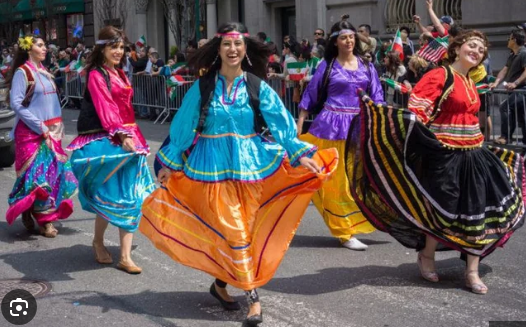Chapter 2
Exiles
and Entrepreneurs - The Iranian Diaspora in the West
The Iranian diaspora in the West represents a complex
tapestry of exile and enterprise, shaped by a variety of historical, political,
and socio-economic factors. This essay explores the causes of migration, the
formation and evolution of diaspora communities, notable success stories, a
spectrum of views within these communities, and their intricate relationship
with Iran.
Causes of Migration
The significant waves of Iranian migration to the West can
be traced back to the late 20th century, with the most substantial exodus
occurring after the Iranian Revolution of 1979. The overthrow of the Shah and
the establishment of the Islamic Republic under Ayatollah Khomeini triggered a
mass exodus. This migration was fuelled by political repression, fear of
persecution, and the desire for greater personal and economic freedoms.
Intellectuals, political dissidents, and those associated with the former
regime were among the first to leave. The Iran-Iraq War (1980-1988) further
exacerbated the situation, compelling more Iranians to seek safety and
stability abroad.
Economic factors also played a role. The fluctuating Iranian
economy, impacted by sanctions, political instability, and mismanagement,
pushed many Iranians to seek better opportunities in the West. The allure of
advanced education and professional growth in Western countries acted as a pull
factor, attracting a significant number of students and professionals.
Diaspora Communities
Iranian diaspora communities have established themselves
prominently in various Western countries, particularly the United States,
Canada, and the United Kingdom. In the United States, Los Angeles, often dubbed
"Tehrangeles,"
hosts one of the largest Iranian populations outside Iran. Other significant
communities exist in New York, Toronto, Vancouver, and London.
These communities have developed vibrant cultural hubs, maintaining
Persian traditions, language, and festivals. Persian restaurants, cultural
centers, and media outlets play a crucial role in preserving and promoting
Iranian heritage. The Nowruz (Persian New Year) celebration is a particularly
prominent event that underscores the cultural continuity among the diaspora.
Success
Stories
The Iranian diaspora boasts numerous success stories across
various fields, showcasing the community's resilience and entrepreneurial
spirit. In academia, individuals like Harvard professor Ali Akbar Salehi and
Nobel laureate Shirin Ebadi have made significant contributions. In the
business world, entrepreneurs such as Pierre Omidyar, the founder of eBay, and
Anousheh Ansari, a pioneering tech entrepreneur and space tourist, stand out.
In the arts, filmmakers like Asghar Farhadi, whose works
have gained international acclaim, and artists like Shirin Neshat have brought
Iranian culture to global audiences. The fashion industry also features
prominent figures like designer Behnaz Sarafpour. These success stories
highlight the diverse talents and achievements of the Iranian diaspora.
A Spectrum of Views
The Iranian diaspora is far from monolithic, encompassing a
wide spectrum of political, social, and cultural views. Political affiliations
range from staunch supporters of the Pahlavi monarchy to advocates of the
current Islamic Republic, and everything in between. This diversity often leads
to vibrant but contentious debates within the community.
Socially, there is a range of attitudes towards assimilation
and cultural preservation. Some members of the diaspora strive to maintain
traditional Iranian customs and values, while others emphasize integration into
Western societies. Generational differences also play a role, with younger
Iranians often adopting a more hybrid identity that blends both Iranian and
Western influences.
Tangled Relationship with Iran
The relationship between the Iranian diaspora and Iran is
complex and multifaceted. For many, Iran remains a homeland imbued with
nostalgia and cultural pride, despite the political and economic turmoil.
Regular visits, remittances, and investments back home signify ongoing
connections.
However, the relationship is also marked by tension and
ambivalence. The Islamic Republic's policies, including human rights abuses,
censorship, and political repression, have led to criticism and activism among
diaspora members. Organizations and movements advocating for democracy, women's
rights, and minority rights in Iran often find significant support within the
diaspora.
Conversely, the Iranian government has a mixed stance
towards the diaspora. While it seeks to harness the financial and intellectual
capital of Iranians abroad, it also views parts of the diaspora with suspicion,
particularly those involved in political activism.
Conclusion
The Iranian diaspora in the West exemplifies a narrative of
exile and entrepreneurship, underpinned by diverse experiences and
perspectives. From the causes of migration rooted in political upheaval and
economic aspiration to the formation of dynamic diaspora communities, Iranians
abroad have made significant contributions to their adopted countries while
maintaining strong ties to their heritage. Success stories across various
fields underscore the community's resilience and adaptability, even as a
spectrum of views and a tangled relationship with Iran continue to shape their
collective identity.

Comments
Post a Comment